Few performers have commanded the screen with the perfect blend of acidic wit and unexpected tenderness quite like Beatrice Arthur. Standing nearly 5’10” with that distinctive deep voice and impeccable comedic timing, Bea Arthur created characters who were unapologetically strong-willed, fiercely independent, and disarmingly vulnerable when you least expected it. For those of us who grew up watching her on television, she wasn’t just an actress—she was a weekly visitor in our living rooms who taught us that women could be powerful, opinionated, and hilarious without apology. Here’s a celebration of twelve moments when Bea Arthur’s brilliance left an indelible mark on entertainment history.
1. When Maude Declared Her Reproductive Rights
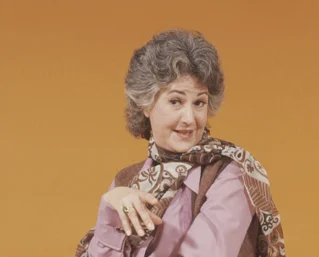
When “Maude” tackled the subject of women’s health in 1972 television had never seen anything like it. As a 47-year-old woman unexpectedly facing pregnancy, Maude Findlay’s two-episode journey through this deeply personal decision was revolutionary. Bea Arthur’s portrayal balanced righteous feminist confidence with genuine vulnerability, creating a nuanced performance that went far beyond political talking points. Biography credits the series with transforming how women were portrayed on-screen across all television.
The power of these episodes came from Arthur’s ability to show Maude’s internal struggle while maintaining her character’s foundational strength. Her delivery of lines questioning what was right for her at her age and stage of life resonated with viewers across the political spectrum, even as some affiliates refused to air the episodes. This watershed moment in television demonstrated Arthur’s willingness to use her platform to address controversial issues, setting a precedent for how comedy could tackle serious subjects with integrity and compassion.
2. Dorothy Zbornak’s Devastating Putdowns on “The Golden Girls”
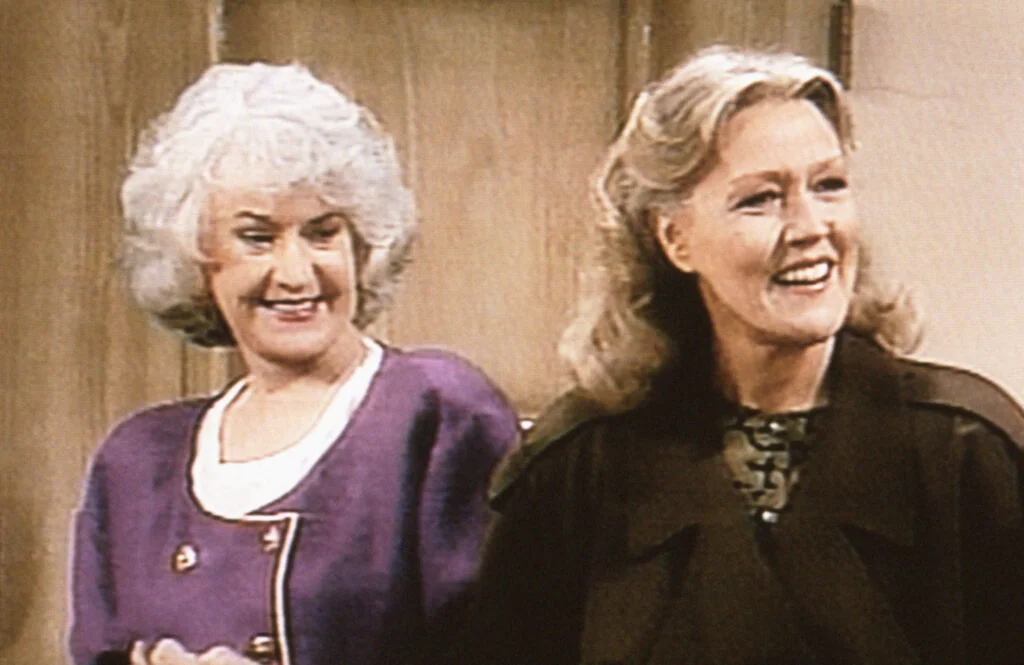
Nobody—but nobody—could deliver a cutting remark with the surgical precision of Dorothy Zbornak. Whether responding to her mother Sophia’s jabs or putting an overconfident man in his place, Arthur’s perfect timing and deadpan delivery elevated the one-liner to an art form. Her talent for the withering stare became legendary—that signature look where she would tilt her head down slightly, raise her eyebrows, and silently communicate volumes of judgment. To make the show even more remarkable, Southern Living has almost two dozen fun facts about everyone’s favorite golden quartet.
What made Dorothy’s zingers especially effective was Arthur’s masterful control of pacing. She knew exactly how long to pause before delivering the knockout punch, and how to use her distinctive voice to emphasize just the right syllable. Behind the sarcasm, however, Arthur always maintained Dorothy’s fundamental decency—these weren’t the cruel barbs of a bully but the self-protective mechanisms of a woman who’d learned to navigate life’s disappointments with humor. Her comedic exchanges with Betty White’s Rose Nylund created some of television’s most perfect moments of contrast, with Arthur’s dry intellectualism playing against White’s sweet naiveté.
3. The “Bosom Buddies” Duet with Angela Lansbury in “Mame”
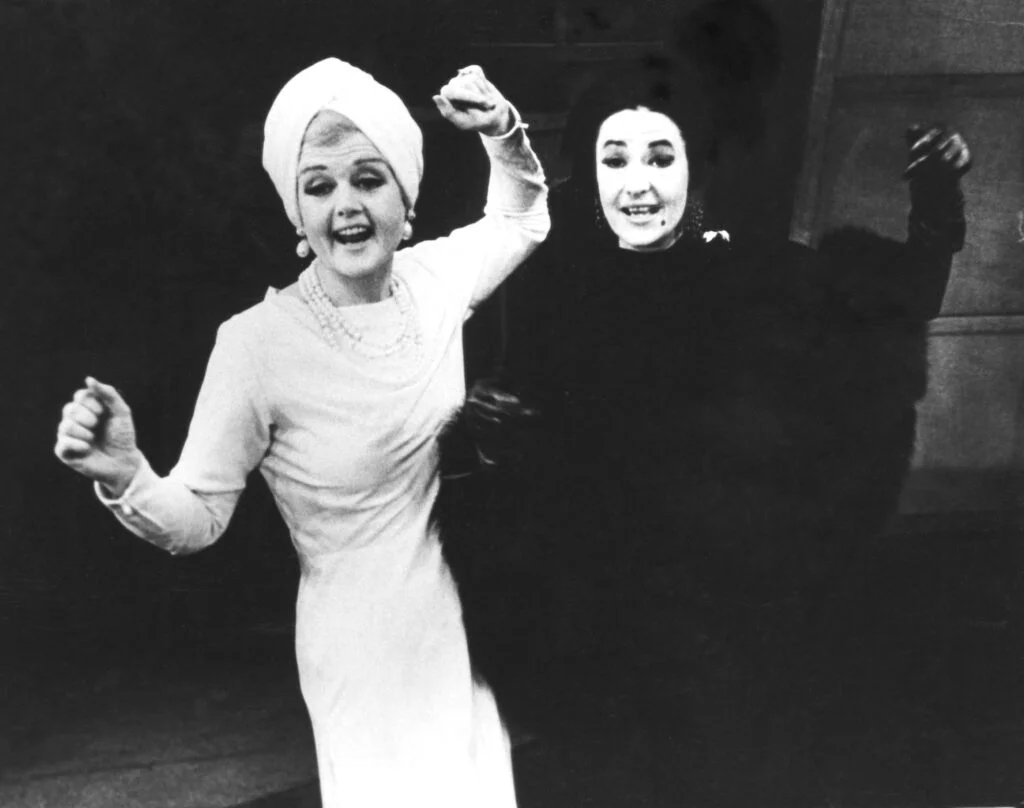
When Bea Arthur stepped into the role of Vera Charles for the film adaptation of “Mame” alongside Angela Lansbury, two Broadway powerhouses squared off in a friendly rivalry that produced pure entertainment gold. Their duet “Bosom Buddies,” a backhanded-compliment battle disguised as a friendship anthem, showcased Arthur’s musical theater chops and her gift for combining cutting remarks with genuine affection. Furthermore, according to Closer Weekly, these two harbored a treasured friendship that continued well after the cameras stopped rolling.
Dressed in glamorous loungewear and trading increasingly pointed “friendly advice,” Arthur and Lansbury created a master class in both comedic timing and musical performance. Arthur’s controlled vibrato and theatrical delivery reminded viewers of her extensive stage background, proving she was far more than just a television star. The number exemplifies the particular talent Arthur had for portraying deep friendship between women—relationships that could accommodate brutal honesty alongside fierce loyalty.
4. Dorothy’s Confrontation with the Doctor Who Dismissed Her Illness
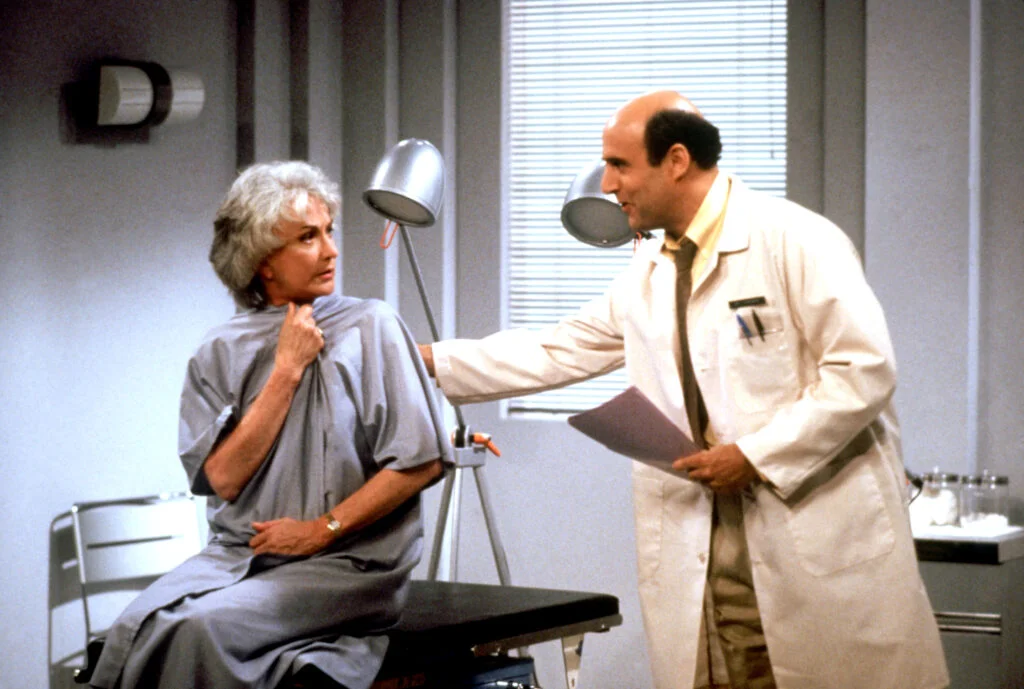
In a Golden Girls episode that still resonates with viewers who have faced medical gaslighting, Dorothy finally confronts the doctor who had dismissed her symptoms of chronic fatigue syndrome as merely psychosomatic. Arthur’s performance shifted from her trademark sarcasm to something far more raw and powerful—righteous anger on behalf of herself and countless others whose suffering had been minimized by medical professionals.
The strength of this scene came from Arthur’s willingness to drop Dorothy’s protective shield of wit and show genuine vulnerability and rage. Her voice shaking with emotion but never losing its fundamental power, she delivered a monologue that validated the experiences of many viewers while demonstrating her exceptional range as an actress. The scene culminates with Dorothy telling the dismissive doctor, “I don’t know where you doctors lose your humanity, but you lose it,” a line Arthur delivered with such authentic emotion that it transcended the sitcom format entirely.
5. Her Final Scene in the “Golden Girls” Finale
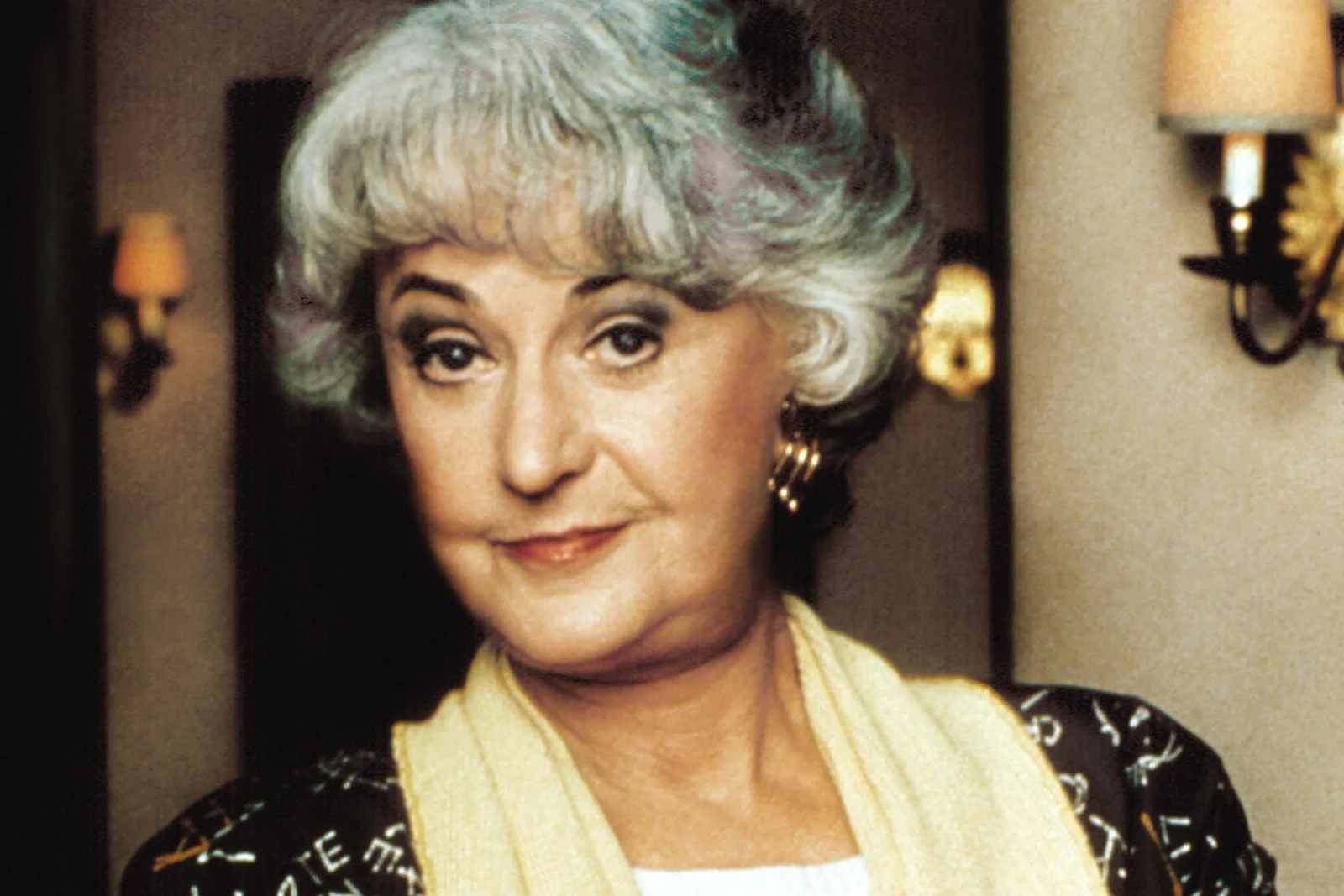
When Dorothy Zbornak married Blanche’s uncle Lucas and prepared to leave Miami in the series finale, Bea Arthur delivered a farewell scene of such emotional power that it transcended the sitcom format entirely. After saying individual goodbyes to each of her friends, Dorothy returns unexpectedly for one final group hug, unable to make a clean break from the women who had become her family.
Arthur’s performance in this scene showcased her full range—from comedy in her initial attempts at a dignified exit to raw emotion in her final moments on screen. The genuine tears in her eyes as she looked back at her friends one last time blurred the line between character and actress, as Arthur herself was saying goodbye to roles and colleagues that had defined seven years of her life. This scene remains one of television’s most moving series finales because Arthur allowed Dorothy’s carefully maintained composure to finally break, revealing the depth of love beneath her sarcastic exterior.
6. Dorothy’s Heart-Wrenching Speech at Her Mother’s Birthday Party
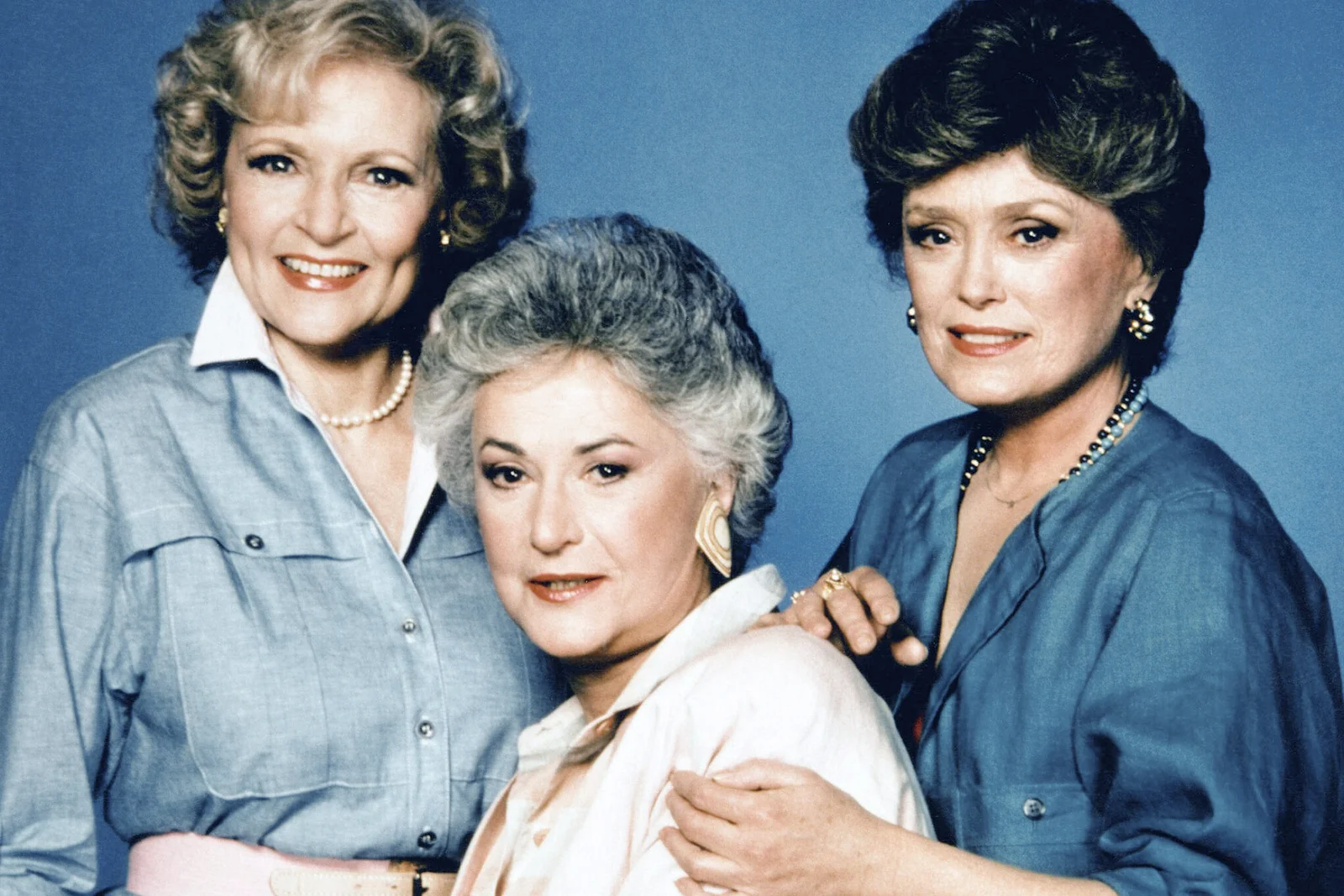
While Arthur was justly celebrated for her comedic genius, some of her most powerful moments came when Dorothy revealed the depth of her love for her often-difficult mother Sophia. In a particularly moving birthday party scene, Dorothy’s toast to her mother transitions from expected humor to unexpected emotional depth, with Arthur masterfully navigating this tonal shift in a way that left not a dry eye among viewers.
The beauty of this scene lies in Arthur’s subtle performance choices—the slight catch in her voice, the momentary break in her usual perfect posture, the way she allowed Dorothy’s carefully maintained composure to soften just enough to reveal the profound love beneath her sarcastic exterior. This ability to pivot from comedy to genuine emotion without a hint of manipulation or sentimentality was one of Arthur’s greatest gifts as a performer, and it gave Dorothy Zbornak a complexity rarely seen in sitcom characters.
7. The “Golden Girls” HIV Episode
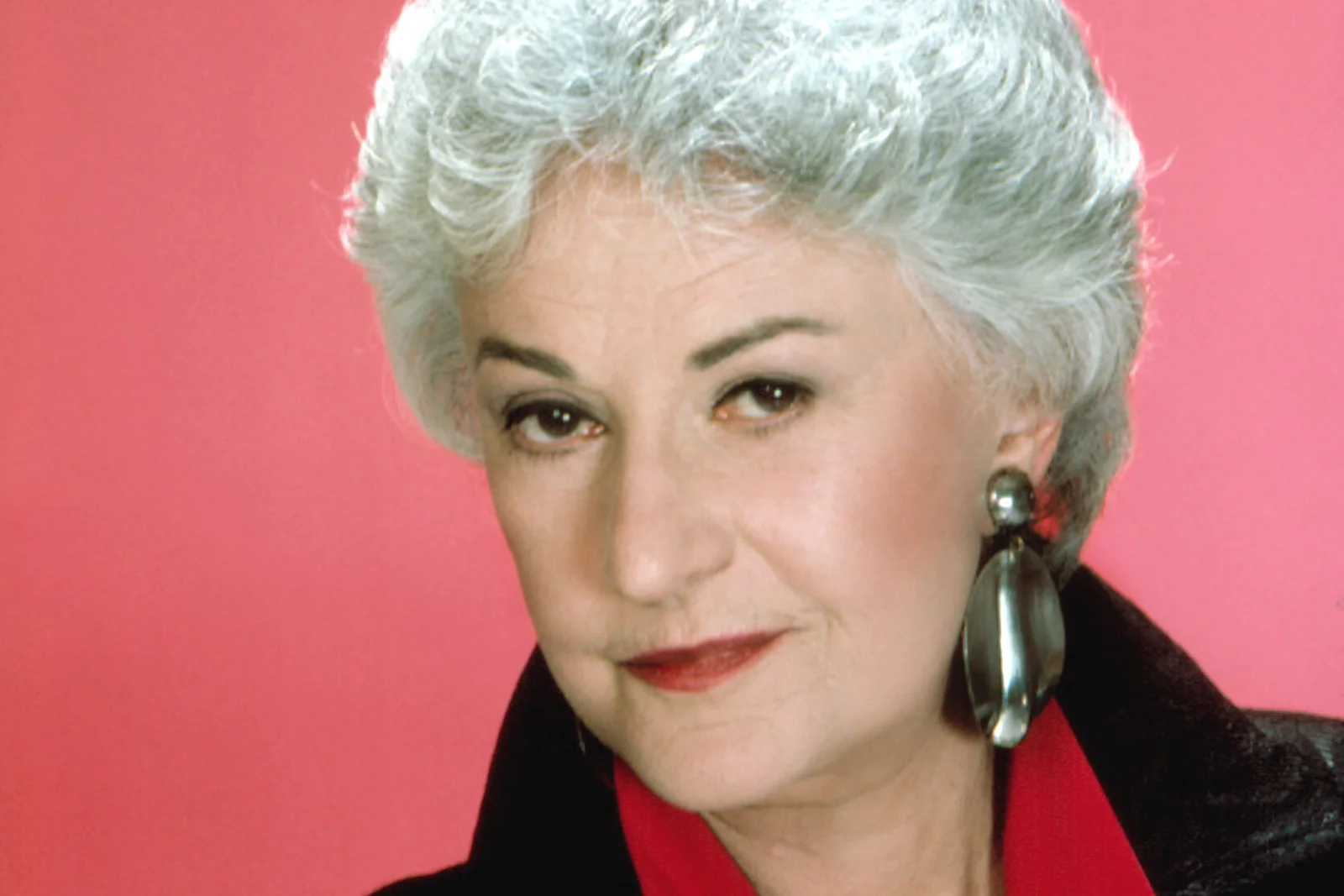
When “The Golden Girls” tackled the AIDS crisis in 1990 through a storyline where Rose fears she may have contracted HIV from a blood transfusion, the show brought much-needed awareness to a topic many television programs avoided. The episode’s power came partly from Arthur’s performance as Dorothy, whose no-nonsense approach to medical facts and unwavering support for her friend modeled compassionate, informed behavior at a time when stigma and misinformation were rampant.
Arthur’s portrayal of Dorothy in this episode balanced educational content with genuine emotional impact, never allowing the “message” to overwhelm the humanity of the characters. Her delivery of factual information about HIV transmission came across as natural rather than preachy, while her fierce defense of Rose against potential discrimination demonstrated Dorothy’s fundamental decency. This episode showed Arthur’s commitment to using her platform for social good while maintaining the entertainment value that made such messages accessible to mainstream audiences.
8. The “Golden Girls” Empty Nest Episode
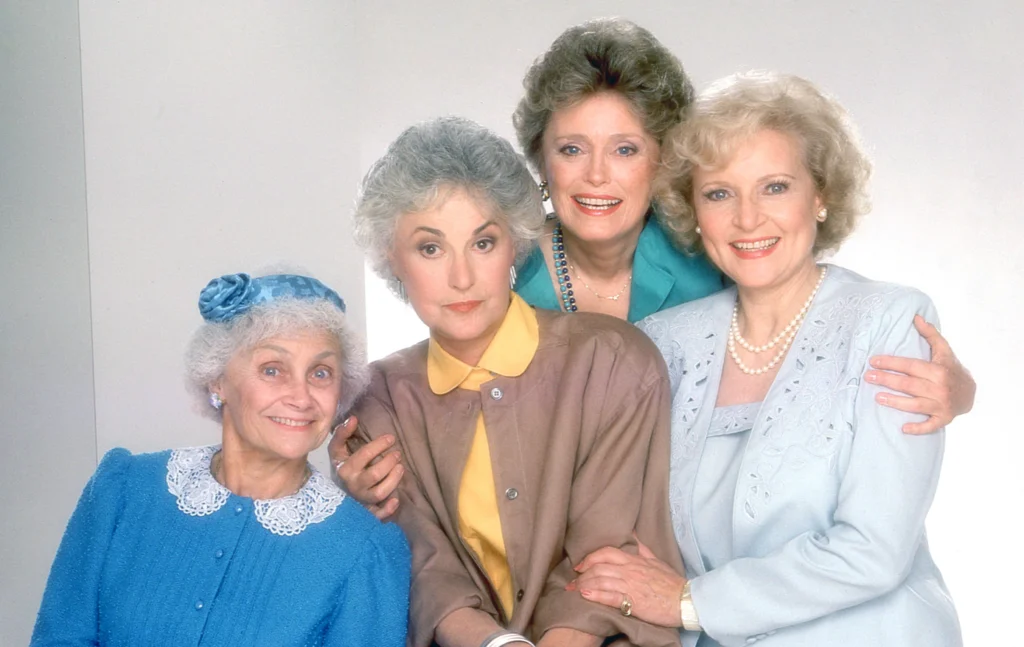
When Dorothy’s youngest child moves out in a particularly poignant episode, Arthur delivered a masterful portrayal of a woman confronting her changing identity. The episode explores the complex emotions of the “empty nest” transition—pride in her child’s independence mixed with genuine grief over the end of her active mothering role. Arthur’s performance captured this bittersweet milestone with remarkable nuance.
What made this storyline especially affecting was Arthur’s willingness to show Dorothy’s vulnerability without undermining her fundamental strength. The scene where she sits alone in her child’s empty room, touching the abandoned childhood items, demonstrated Arthur’s gift for communicating volumes of emotion with minimal dialogue. This exploration of later-life transitions was groundbreaking television, addressing the emotional challenges of aging with honesty rather than platitudes or simplistic solutions.
9. Her Broadway Turn in “The Threepenny Opera”
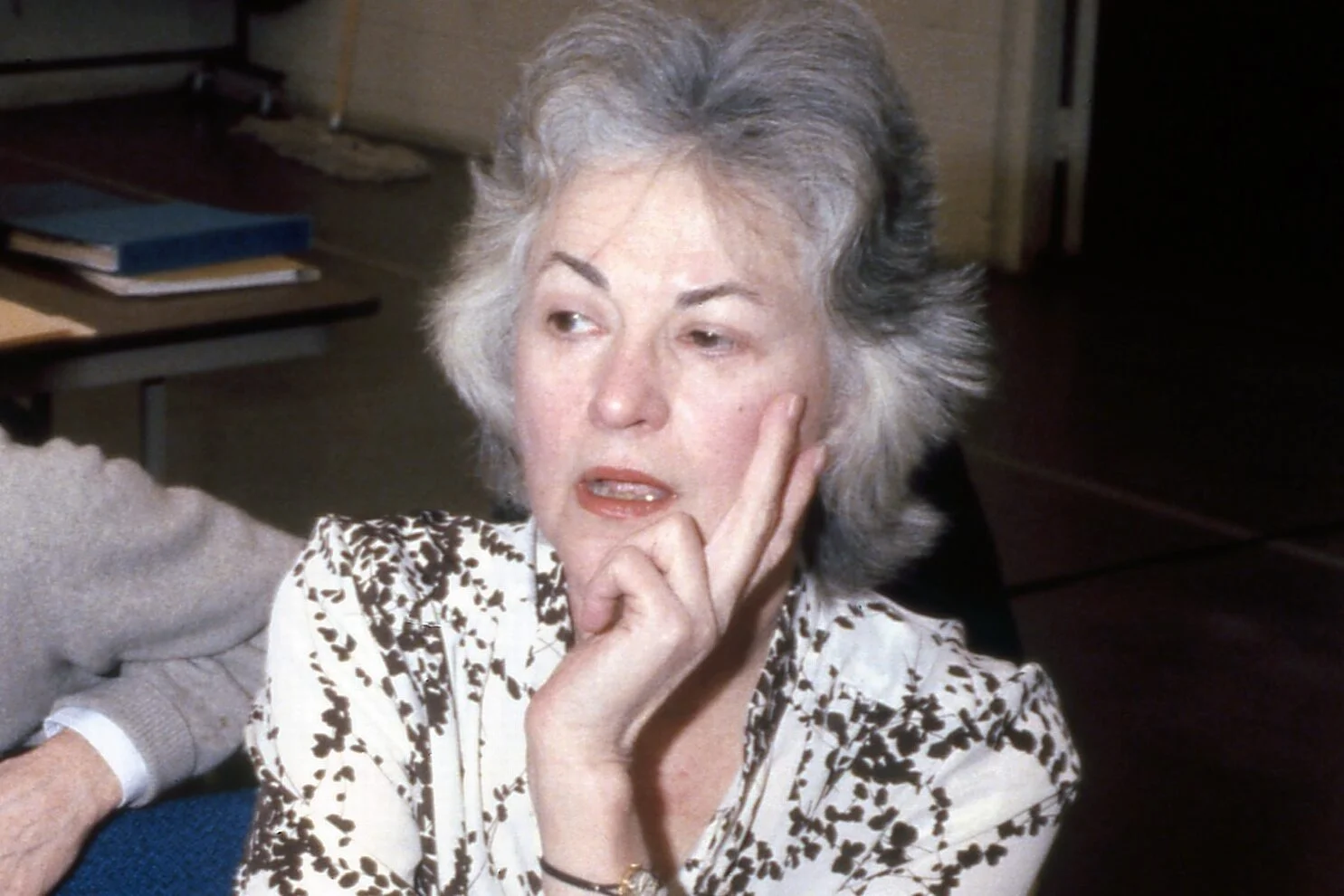
Long before television made her a household name, Bea Arthur established her theatrical credentials with a show-stopping performance as Lucy Brown in the 1954 off-Broadway production of “The Threepenny Opera.” Her rendition of “Pirate Jenny” revealed the powerful singing voice and commanding stage presence that would become her trademarks, earning critical acclaim and setting the stage for her later success.
This early career highlight demonstrated Arthur’s willingness to take on complex, morally ambiguous characters and material that challenged audiences rather than merely entertaining them. The production’s blend of social criticism and dark humor suited Arthur’s sensibilities perfectly, showcasing her ability to deliver both entertainment and substance. Her training in the theater informed every aspect of her later television work, from her impeccable diction to her perfect understanding of how to command audience attention.
10. Maude’s Unforgettable Entrance Line
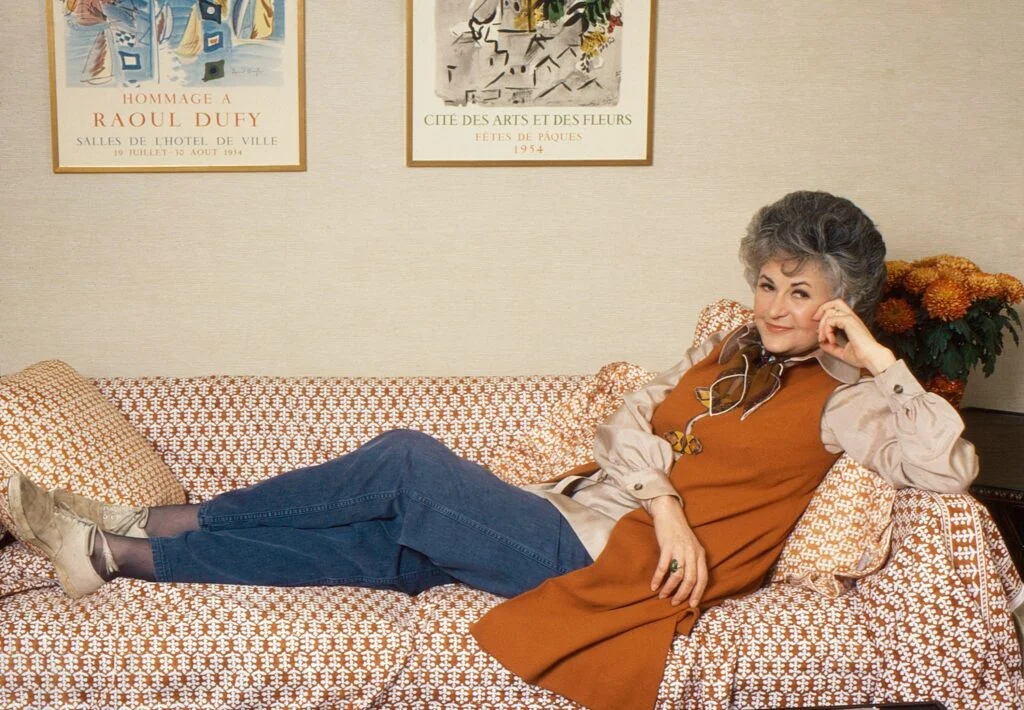
From the very first episode of “Maude,” Bea Arthur established her character’s formidable presence with what became her signature entrance line: “God’ll get you for that, Walter.” Delivered with impeccable timing and her distinctively authoritative voice, this catchphrase immediately communicated Maude Findlay’s unique combination of progressive politics, sharp wit, and underlying moral framework.
What made this line so effective was Arthur’s delivery—simultaneously threatening and affectionate, serious and playful. The phrase became a cultural touchstone, with viewers anticipating and delighting in each new rendition throughout the series. Arthur’s understanding of how to make a catchphrase feel organic rather than forced demonstrated her respect for the audience’s intelligence. The line’s popularity highlighted how completely Arthur had merged with her character, creating a television personality so distinctive that even a brief vocal impression would immediately evoke her presence.
What made Arthur’s performances so enduring was her refusal to simplify her characters for easy consumption. Dorothy and Maude could be simultaneously righteous and self-righteous, confident and insecure, cutting and kind. Through these contradictions, Arthur created women who felt authentically human rather than merely entertaining. Her impeccable timing and distinctive voice brought the perfectly written lines to life, but it was her willingness to show the vulnerability beneath the strength that made viewers invite her into their homes week after week, year after year.


